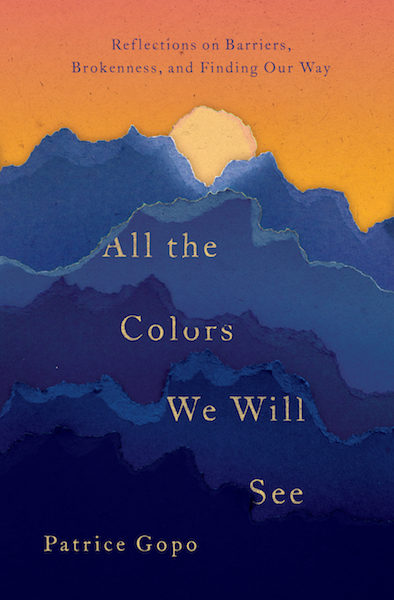Today, I’m delighted to have the talented writer Patrice Gopo on Andilit. She is a friend and a wise woman, and she writes in my favorite writing form – the essay. Who doesn’t love a form whose very name means “to attempt” repeatedly? Enjoy Patrice’s essay below.
1.
My daughter and I share a plate of fried ripe plantains, a sweet taste that immediately reminds me of my childhood.
“Mommy, are there bananas in plantains?” she asks.
I pause. Bananas in plantains. “A plantain is a plantain,” I say. “It’s not a banana.”
“But are there bananas in plantains?” she asks again. And I think of what she knows. The similarity in taste, the specks of black seeds. This is where the pondering begins. I ruminate about her understanding of this food that matters so much to her Jamaican-American mama. “A plantain doesn’t have any banana in it,” I tell her.
2.
The memories spill forth with a ferocious speed. Plantains. Bananas. The evening so many years ago when my babysitter peeled a plantain, thinking it was a banana, and gave it to me. Me seated on the red stool in my childhood kitchen while my mother fried plantains. A day when I lived in Cape Town and my friend gave me a plantain picked from her friend’s tree. One by one, I turn these images into fully formed scenes. As I write, I find myself wondering: “Why do I care so much about plantains?” and “When my daughter doesn’t know the difference between a plantain and a banana, what does that say about me?”
3.
What is the difference between a plantain and banana? I type those words and wait for my phone to tell me. I discover that plantains and bananas share a common ancient ancestor that boasted much larger seeds. And memories continue to pour into me. My father singing, “Come, mister tally man, tally me banana,” and my sister and me yelling back, “Daylight come and me wan’ go home.” Family. Generations. There’s something here, I think. I keep taking notes, I keep following where the memories lead. I’m still not there, though. This I know. Patience, I tell myself because patience can be what separates a glimmer of connection from a fully-realized piece. Patience is sometimes just what an essayist needs.
4.
At a writing retreat, a prompt instructs me to write words directed at another human being. For reasons only my unconscious understands, I choose to write words to my sister. “I’ve heard it said that one day you and I will be all we have left.” I write about a future day when my sister and I no longer having living parents. I write about a time when it will be just the two of us alive who experienced the memories from the early years of our lives. The free write ambles into the territory of preparation of Jamaican food and what my sister might teach me.
It’s now months since my daughter first asked me if there are bananas in plantains. It is here, though, as I sketch out this imagined scene of my sister and me, that the worlds of memory and moments, research and scenes collide in the most unexpected way. These meanderings, these questions about plantains and my daughter, this was never about what I’m teaching her. This was always about my sister, always about me. A plantain is not a banana I discovered during my research, but they are close. My sister is not me, but we share much in common. Two black American daughters of Jamaican immigrants with different stories about the formation of our identities.
5.
The pondering began with a single question from my child. The writing found life with a long-awaited connection between two sisters and plantains and research about banana trees. In the act of understanding the connections, I began to see what mattered to this story and what might fade away. Yes to a scene of my long-ago babysitter mistaking a plantain for a banana. Yes to a memory of my mother pushing my sister and me in a grocery cart in search of plantains. No to my father singing Dayo. And no—the big surprising no—to the moment my daughter asked if bananas are in plantains. That moment began the search for story, but it wasn’t part of what the story ultimately wanted to be.
**First published at charlottelit.org.**

Patrice Gopo is the author of All the Colors We Will See, an essay collection about racial identity formation, immigration experiences, and the search for belonging. She lives with her family in North Carolina. Please visit www.patricegopo.com to learn more.

